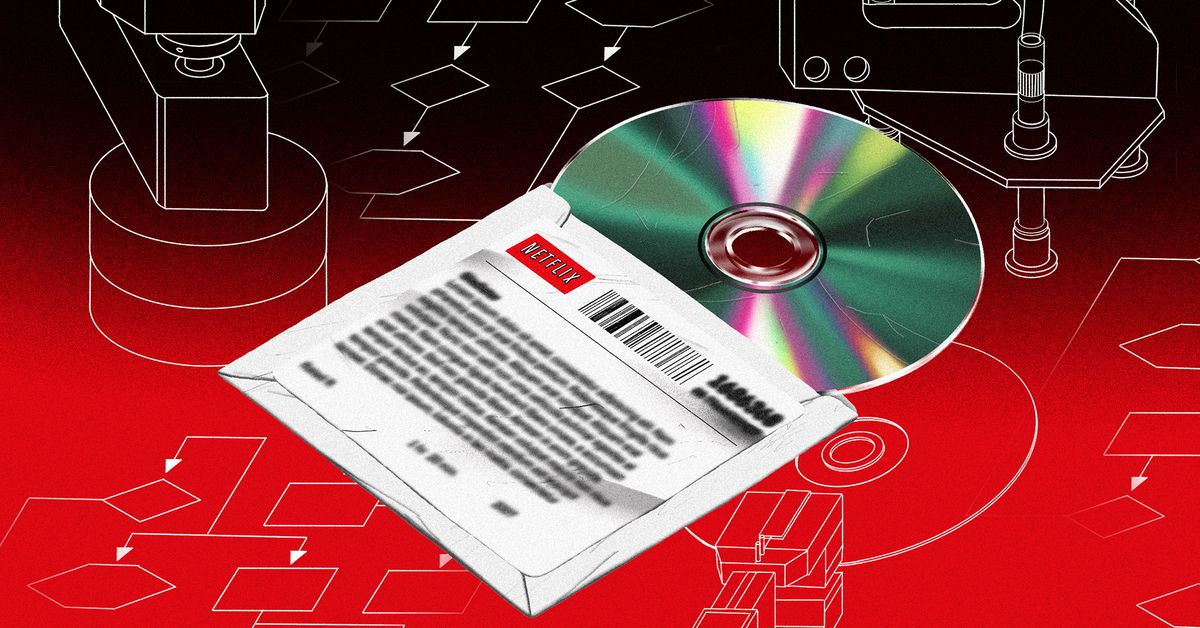I’ve been wondering about all this tech and what’s going to happen to it. Surely some other company would be interested in buying it and taking over where they left off. Maybe Redbox?
Now that streaming services are jacking up their prices and people and cancelling, it seems like a perfect time for a resurgence in physical media rental, ironically.
It’s in the article (I don’t mean to sound rude, if I did):
These last few hubs have been sending Netflix’s remaining DVD subscribers up to 10 extra discs during its final weeks of service, with no obligations to send any of them back. Netflix plans to donate a portion of its inventory to organizations focused on film and media, according to Zamora; the rest will be recycled.
I wish they’d just put them up on Amazon. I am pretty sure a good chunk could sell.
You could replace about five humans opening the discs with one machine.
That sounds both awesome and terrifying.
The terrifying part to me is how many people they must have had doing that boring task week after week.
Like sure, I don’t want everyone to be jobless because the robots are taking over. But I am hugely in favor of the boring, repetitive tasks being automated away so people can work on more interesting things.
deleted by creator
Why terrifying?
This is the best summary I could come up with:
Almost every film ever made, available via next-day delivery, with no late fees: that formula didn’t just drive Blockbuster into bankruptcy but, for a moment in time, completely redefined how movies were watched.
In order to send out more than 5 billion discs to millions of subscribers over the years, the company deployed cutting-edge automation, embraced machine learning before it was cool, and laid the technical and financial foundation for what would ultimately become the massive, worldwide streaming business Netflix is known for today.
“We didn’t have DVDs sitting on shelves — even overnight,” wrote founding CEO Marc Randolph in his book That Will Never Work chronicling Netflix’s early days.
That Netflix kept the lights in its DVD hubs on as long as it did is largely due to the innovations that people like Johnson and Venkatesh worked on, which helped to automate shipping and keep the service profitable.
The decline of the DVD business made some of this maintenance a bit easier: faced with fewer subscribers, the company combined shipping facilities and closed redundant hubs, leaving it with a bunch of unused machines that could be used for spare parts.
Netflix spokesperson Adrian Zamora declined to comment on how many hubs remained operational in 2023, but Redditors estimated earlier this year that the number may have been in the single digits.
The original article contains 2,211 words, the summary contains 222 words. Saved 90%. I’m a bot and I’m open source!



